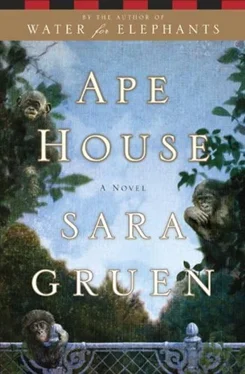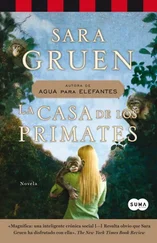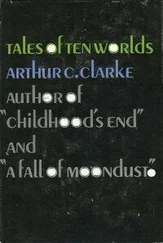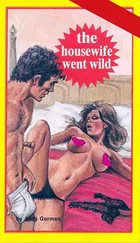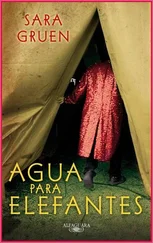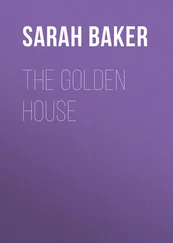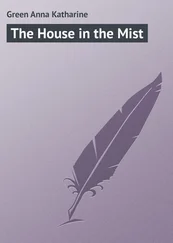It couldn’t take too long to produce four episodes. She could be safely home in six months. Not that he wanted her to fail; she deserved success more than anyone else he knew.
After graduating summa cum laude with an insightful thesis on the sociological consequences of the industrial revolution as reflected in the works of Elizabeth Gaskell, Amanda had spent almost the entire time between graduation and their move to Philadelphia writing catalog copy for an online outdoor-sports outfitter. She worked eight-hour days laboring to find new and inventive ways of describing mukluks and all-weather parkas (“top notes of Ugg with a soupçon of Piperlime, and guaranteed 100 percent cat-fur free!”). She joked that her situation could have been worse-her best friend, Gisele, who had graduated first in their class, had taken a job painting house exteriors and had recently married a man who taught sound healing to a group of raw-foodists-but John knew she was simply putting on a brave face. In her spare time, she worked on her first novel, although she was too shy to show it to John until it was complete.
When she finally gave it to him, John flipped through the pages with a growing sense of unease. He hoped earnestly and with his soul that he was wrong-after all, his own guilty pleasures included Dan Brown and Michael Crichton-and yet he couldn’t shake the feeling that the novel was missing that crucial something . Her prose was beautiful and polished and swept him along, but by the time he reached the end she had not blown up a single thing. There was no car wreck, no murder, no secret brotherhood or international plague. It was psychological and literary and while John understood that there were people who enjoyed such books, he wasn’t one of them, which was exceedingly unfortunate given that his wife had just written one and wanted his opinion. When his silence finally grew conspicuous, he lied copiously and through his teeth.
As the manuscript made its way around New York publishing houses, Amanda-his steady, strong, unsinkable Amanda-began to crack. She developed insomnia. She gnawed her cuticles until they bled. She cooked ever more complicated meals and ate virtually nothing. She developed headaches and, for the first time ever, complained about her job. (“What’s wrong with ‘tufts of skunk’? They wanted edgy, I gave them edgy. How was I supposed to know it really was skunk? And if it was, why all the secrecy?”)
Four and a half months passed. A handful of rejections trickled in, followed by radio silence. And then, on Amanda’s thirty-fourth birthday, her agent called. A publisher had made an offer for The River Wars and Amanda’s as-yet-unwritten second book.
Amanda’s was a modest advance, but it allowed her to give up copywriting. Chinese cat fur be damned! With the exception of being required to publish under a pseudonym, John had never seen Amanda so happy. (“Nobody is going to buy a novel by Amanda Thigpen,” her editor had explained. “Now Amanda LaRue, on the other hand…”) The night of the book sale was the first appearance of Osetra in their household, and for that one night everything felt possible-bestseller lists, foreign editions, movie deals. John had never been so happy to be wrong.
If the lead-up to the release of The River Wars was a frenzy of excitement and anxiety, the weeks that followed were devastating.
There was no launch party. In retrospect, John realized that he was probably supposed to have arranged one. There were no reviews, because it had been published in paperback rather than as a hardcover, a prejudice John and Amanda didn’t understand but felt someone should have explained. Her “tour” consisted of three local signings.
John drove Amanda to the first because she was too terrified to be counted on to steer, and when he reached across the gearbox for her hand she clung so tightly that his palm was pitted with nail marks. She practiced deep breathing in the parking lot before going in, and her hands trembled so violently that she expressed doubts about her ability to sign her name.
The bookstore had a small table set up with a semicircle of folding chairs in front of it. Amanda’s books were piled beside two Sharpies, a plate of chocolate-chip cookies, and a bottle of water. Amanda took her seat behind the table and waited.
Halfway through her allotted hour, a man wandered to the middle of the semicircle and settled into a chair. John hovered nearby, watching as Amanda first went pallid and then apple-red, and then smiled and steeled herself to say something. Just as she gathered breath, the man stuck his legs out, crossed his arms, and closed his eyes. Within seconds he was snoring. The color drained from Amanda’s cheeks and John nearly couldn’t contain his urge to walk over and dump his hot coffee on the man’s lap.
The bookstore’s Events Coordinator spent the rest of the hour gamely collaring customers and dragging them to Amanda’s table. Trapped, they’d pick up the book and pretend to read the back cover, muttering and looking uncomfortable until they managed to break eye contact and wander off. At the end of the hour, the cookies were gone and the books remained. Amanda was the color of chalk.
She insisted on driving herself to both her other signings. “Oh, fine,” she said cheerily when John asked how the second one went. Her smile lasted a couple of seconds before she dissolved into shoulder-wracking sobs. After the third signing, she was more pragmatic. “I’m screwed,” she proclaimed calmly, while filling a tumbler with equal parts vodka and orange juice.
As the months went by a couple of foreign editions sold (her book was briefly the number-two bestseller in Taiwan, which would have been amusing if it had hit even a single list in the States). And then, out of the blue, both publisher and agent were gone. Although clearly it was through no fault of her own, she obsessed about what she might have done differently. If she’d published under Thigpen instead of LaRue, her real estate in the bookstore would have fallen somewhere between Paul Theroux and Dylan Thomas (it was widely speculated on Internet writers’ communities that Joshua Ferris’s sales were strong because of his proximity to Jonathan Safran Foer). She could have sent herself on a real tour, armed with a GPS, and signed every copy of her book on the Eastern Seaboard. She could have created an interactive Web site, run contests, started a blog. John watched helplessly as she worked herself into a frenzy. Then, as suddenly as it had begun, the self-flagellation ended. She called her old boss, was reinstated in her cubicle, and went back to work extolling the virtues of Gore-Tex, which turned out to have been their financial salvation, because shortly thereafter, John lost his job.
While devastating, John’s layoff was not unexpected: every major paper had suffered massive layoffs, and the situation was particularly dire at the New York Gazette . Management announced its plans to cut a quarter of the newsroom months after everyone took what was euphemistically called a “wage concession” to avoid exactly that. A cheery memo followed, assuring them that if they all pulled together they’d be able to “do more with less!” The next memo implored them to “transform the business,” “generate content” (John wondered what, exactly, management thought the reporters had been doing), and concentrate on “packaging.” Charts! Visuals! Design! These were the way of the future. One buffoon of an executive actually declared that a perfectly designed page should cause readers to spill their coffee. It made John yearn for the days when Ken Faulks was at the helm, but Faulks, a media mogul with sandy hair and a crooked smile, had long since moved on to the greener pastures of porn. John had no particular fondness for the man-as John recalled, he had the people skills of Genghis Khan-but at least he’d kept the company solvent.
Читать дальше
